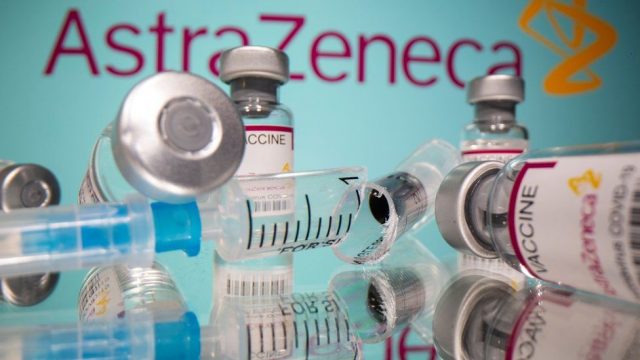express– Channel 4 News said in its report on Monday evening: “Two senior sources have told this programme that while the data is still unclear there are growing arguments to justify offering younger people — below the age of 30 at the very least — a different vaccine.” The channel claimed an announcement from the MHRA could be made later today. The MHRA has released a statement confirming it is investigating the blood clots but added no decision had “yet” been taken on changing its advice.
The regulator said: “People should continue to get their vaccine when invited to do so.
“Our thorough and detailed review is ongoing into reports of very rare and specific types of blood clots with low platelets following the COVID-19 Vaccine AstraZeneca.
“No decision has yet been made on any regulatory action.”
Downing Street has continued to insist the AstraZeneca vaccine is safe and effective, and that people should continue to accept the jab when they are called forward.
A UK Government spokesperson said: “The Oxford/AstraZeneca vaccine is safe, effective and has already saved thousands of lives in this country. As the U.K.’s independent regulator has said, when people are called forward, they should get the jab.”
The MHRA conducted a review of the AstraZeneca vaccine last week, and said there was currently no evidence to suggest a causal link between blood clots and the jab.
The regulator also insisted the benefits of the vaccine in preventing coronavirus outweigh any possible risks.
It noted that 30 people out of the 18.1 million who had received the Oxford vaccine in the UK had developed blood clots, and seven of those had died, as of March 24.
Epidemiologist Professor Neil Ferguson told BBC Radio 4’s Today Programme: “In terms of the data at the moment, there is increasing evidence that there is a rare risk associated, particularly with the AstraZeneca vaccine but it may be associated at a lower level with other vaccines, of these unusual blood clots with low platelet counts.
“It appears that risk is age-related, it may possibly be – but the data is weaker on this – related to sex.
“And so the older you are, the less the risk is and also the higher the risk is of Covid so the risk-benefit equation really points very much towards being vaccinated.”
Professor Ferguson said the MHRA and the Joint Committee on Vaccination and Immunisation (JCVI) were considering the potential risk of blood clots from the jab “very urgently”, but added: “No vaccine, no medicine is risk free – it is always about a balancing equation against risk.”
Last month, more than a dozen EU member states temporarily suspended use of the AstraZeneca jabs, citing a handful of reports around blood clots experienced by people receiving the vaccine.
The European Medicines Agency (EMA) insisted the vaccine was safe to use, but some countries around the world are still only rolling it out to a fraction of their population.
The AstraZeneca jabs are only been given to over-55s in France and Canada, over-60s only in Germany and North Macedonia, and over-65s only in Sweden, Lithuania and Finland.
Meanwhile, in Norway and Denmark, there is a full suspension of the AstraZeneca vaccine.
Britain’s vaccine deployment minister has revealed Britain will begin the rollout of Moderna’s vaccine in mid-April.
When asked if the deployment of the jab was on track to begin within the next week or two, Nadhim Zahawi said “very much so”.
He told BBC TV: “It’ll be in deployment around the third week of April.”
Mr Zahawi said he was confident the Government is still on track to meet its target of offering all adults a first dose of a Covid vaccine by the end of July.







